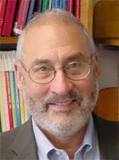“A crime”, “absurd”. That’s what he said.
Asked by Fairfax Media to nominate the two biggest mistakes the government could make that would take it down the American path of widening inequality and economic stagnation, Professor Stiglitz chose the budget changes to university fees and Medicare. Each would make Australia more like the US.

“Countries that imitate the American model are kidding themselves,” he said. “It seems that some people here would like to emulate the American model. I don’t fully understand the logic.”
In the lead-up to the budget Education Minister Christopher Pyne said Australia had much to learn about universities from overseas, “not least … from our friends in the United States”.
Professor Stiglitz said Australia had “a system that is really a model for the rest of the world”, and deregulating fees would move the entire system in the wrong direction.
“Trying to pretend that universities are like private markets is absurd. The worst-functioning part of the US educational market at the tertiary level is the private for-profit system,” he said. ”It is a disaster. It excels in one area, exploiting poor children.
“If you’re rich your parents can pay the fees, but if you are poor you are going to worry about how much debt you’re undertaking.
“It is a way of closing off opportunity and that’s why the US doesn’t have educational opportunity.
“While we in the US are trying to re-regulate universities, you are talking about deregulating them. It really is a crime.”
Similarly with the health system. We have one of the best systems in the world for access and outcomes. Yet we are trying to take it in the direction of the USA which sits at the bottom of the pile.
He said the typical inflation-adjusted income of a US household was lower than it was 25 years ago. The typical inflation-adjusted income of a male full-time worker was its lowest in 40 years.
“You have to say that the American market model has failed. It’s a very strong statement for someone who believes in a market economy. But at the bottom it’s even worse. The minimum wage is about where it was almost a half century ago.”
Asked what Australia had done right that the US had not, he said: “unions”.
“You have been able to maintain stronger trade unions than the United States. The absence of any protection for workers, any bargaining power, has had adverse effects in the United States.
“You have a minimum wage of around $15 an hour. We have a minimum wage of $8 an hour. That pulls down our entire wage structure.”


